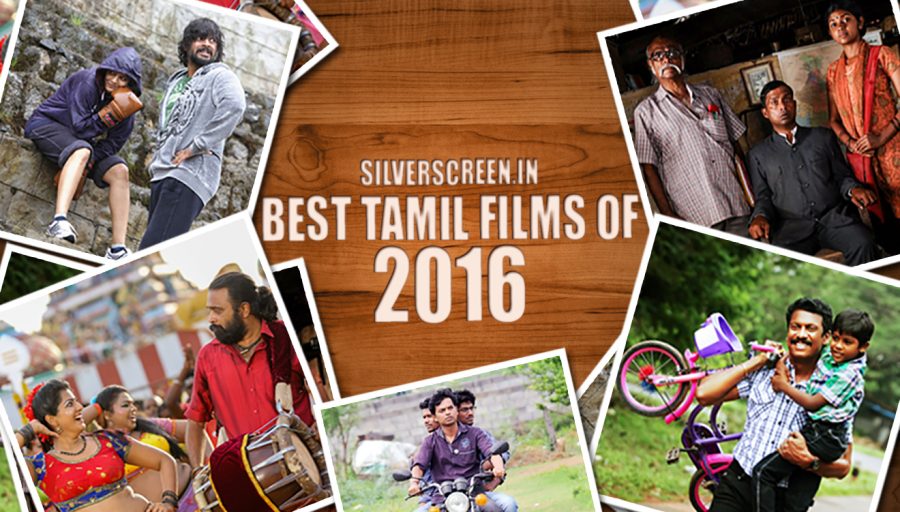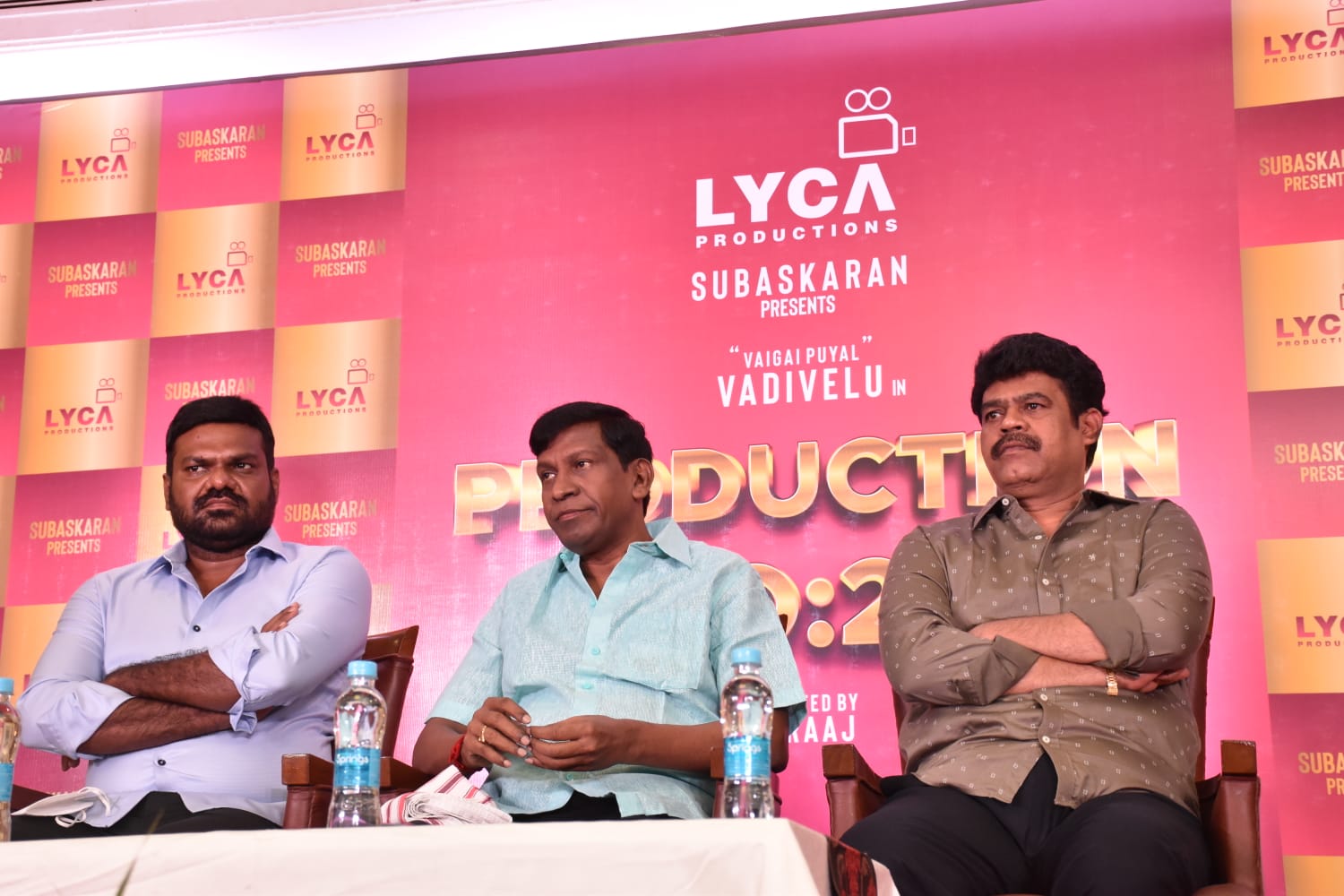Hidden amongst (what feels like) a truck-load of horror films this past year were films that bucked the trend and told stories of real men and women, tackling real issues.
Promising films with the big stars of today released. Kabali, hyped as Superstar’s return to his Mullum Malarum days, didn’t quite satisfy the audience. Kabali the character was awesome. But the film was in many ways a disappointment. Others like Theri, Kodi, were sold to the public as new-age films. But they too fell victim to the Gods of Commercial cinema.
However, 2016 was not completely unsatisfying. The year saw films with fine performances, narratives. It saw kickass women characters existing in the same sphere as the meek and submissive ones. Mainstream heroines like Nayanthara and Trisha Krishnan balanced their commercial roles with more offbeat ones. Women-centric films happened.
And it was exciting.
Tharai Thappattai
This Bala directorial had Varalaxmi Sarath Kumar dancing her heart out. With the sort of uninhibited performance that shone like a beacon, Varalaxmi made us want more and more. Her character went through the same sort of indignities other Bala heroines have, and yet, there was something about Varalaxmi’s Sooravali, that when time came to bid her goodbye, we just couldn’t.
The film itself was a showreel of highlights from Bala’s earlier films. By now, this filmmaker has perfected the sort of format that one needs a bracing drink of Scotch to survive. And Tharai Thappattai is moulded along those very same lines. The film is intense, and the sort of violence and apathy in display onscreen make it so much more than the musical entertainer it was marketed as. But then, with Bala at the helm, one would be silly indeed to expect entertainment.
Irrudhi Suttru
Irrudhi Suttru is what one gets when unbridled optimism and youth is pitted against ruthless pragmatism. Madhie, a young fisherwoman-turned-boxer from Chennai embodied the former, a firebrand of a girl itching to chip away at patriarchy in all its forms, one punch at a time. R Madhavan’s Prabhu was the latter. Tired and disillusioned by the politics that surrounds boxing in India, he was a fitting contrast.
Sudha Kongara Prasad pits both these contrasting ideologies against each other, till one sort-of wins. I didn’t like the cynicism that clouded Madhi after the interval, but maybe that was for the best, after all. The film also had the fine Ey Sandakkara, a melodious composition by Santhosh Narayanan. A reminder of the times Santhosh stayed true to his roots, and did not sell out to the God of ‘Mass’ Cinema.
Uriyadi
Brutal, bloody, and real, this campus film was like no other. Directed by debutant Vijay Kumar, the movie took on caste violence in Tamil Nadu’s southern districts head on. There is drug abuse, violence and gore and yet, none of it is unjustified.
The lack of proper resources make Uriyadi a raw film. Fitting, maybe, for the sort of gut-wrenching portrait of small-town caste discrimination that Vijay wants to show.
Iraivi
Karthik Subbaraj’s Iraivi was certainly ambitious. The film explored feminism and what it means in present-day Tamil Nadu, through the eyes of three men. All flawed.
With stellar performances from Anjali, Vijay Sethupathi, and SJ Suryah, the film was the most atmospheric of Karthik’s films thus far. And yet, it did not create the sort of impact many believed it should have.
Perhaps it was because the film was marketed as feminist cinema, a celebration of women even. When in reality, it wasn’t. The misogyny of the three male leads shone through in different ways, and finally, it fell to the women to finish the job and get on; perhaps because Karthik lost himself in the many references he wanted to make. And yet, this hotly anticipated third film established Karthik Subbaraj as an independent thinker, an original voice among a herd of filmmakers, even if he didn’t quite get his thoughts across.
Oru Naal Koothu
Through Oru Naal Koothu, director Nelson Venkatesan brought to life the many quirks of the marriage-obsessed Indian community. With a brilliant cast made up of Dinesh Ravi, Mia George, Riythvikaa and music by Justin Prabhakaran, the film was a light-hearted yet rational look at love, commitment and that holiest relationship of them all – marriage.
Appa
Appa has the subtlety of that wooden scale your teacher used to hit you with. And yet, at a time like this, when children are increasingly pushed and moulded to fit that Indian stereotype of ‘brainiac IIT pass-out’, it is the lesson Tamil audiences need. And Samuthirakani, as the avenging angel, is the hero Tamil cinema needs to see more of. If only for yet another glimpse of those fiery eyes.
Joker
Another tone-deaf lesson, in which the director would rather tell audiences what to think, the strident storytelling in Joker did not make for very pleasant viewing. On the other hand, entertainment is not everything.
At its heart, Joker, like Raju Murugan’s previous Cuckoo, had a lovely little gem of a romance. Between two very normal people who wanted the usual things. Tragedy strikes, and all of a sudden Joker becomes a political satire.
Seen through the eyes of Guru Somasundaram’s Mannar Mannan, whose single-minded commitment to his bed-ridden wife and the people, is the real hero this world needs. And maybe, Tamil cinema even.
Read: Joker Review – Poetic And Political
Dharmadurai
Seenu Ramasamy’s Dharmadurai may have suffered from a serious case of holier-than-thou-itis. But, in ideology alone, it excelled. It had an upper caste lead, a sensitive, gentle Doctor in a community of aggressive, caste-proud men.
Seenu also wove in references to the Mahabharatha (five brothers, a Kunti-like mother), in a very interesting way. While the film failed in execution, it was nonetheless an interesting film.
Through and through, it enforced the principle that education alone is the cure of the social ills affecting our community. At times like these, with caste violence and deaths becoming the norm, this film (despite its many faults) is the need of the hour.
Kuttrame Thandanai, Aandavan Kattalai
Manikandan has had a superlative 2016. He made two very different films – one a dark, brooding thriller. And the other, a light-hearted look at the bribery and fraud that oils the wheels of our Government. That both released in the same month, and still succeded at the box office, is the sort of thing that is definitely list-worthy.
In Kuttrame Thandanai, Manikandan takes us on a festering, maze-like apartment block that is mired in darkness. A murder leads the film’s hero – a man fighting to keep blindness at bay – to take advantage of the opportunities it presents. Vidharth is raw, almost visceral as the common man slowly consumed by desire. Aishwarya Rajesh more than makes up for her roles in Hello Naan Pei Pesuren, with her performance in this film. But, easily, Guru Somasundaram’s small yet effective role as the slimy lawyer, was the best thing ever in Kuttrame Thandanai.
Aandavan Kattalai was completely different in tone. The film had Vijay Sethupathi in his most relaxed performance yet, and Ritika Singh in a refreshing role that didn’t require her to jump to Switzerland for a choregraphed dance sequence. Running through the film’s eloquent political commentary is the fine texture of comedy. This brilliantly written script, co-written by Manikantan, Arul Chezhiyan, and Anu Charan, unearths vibrant humour out of mundane situations, and is a remarkable cinematic feat that needs to be celebrated.
Read: Aandavan Kattalai – Full Of Warmth And Life
Visaaranai
Visaaranai is full of violence. It is about justice denied, apathetic government mechanisms, greed, corruption, and a ruthless society which has little place for people from marginalised communities. Vetrimaaran’s adaptation of Lock-Up was a brutal shock for audiences used to song and dance films, but it was a timely wake-up call. Its Oscars and National Award recognition just made it more visible, and helped it reach a pan-Indian audience. Stories like this need to be told. And told often. Without them, and with an apathetic government crushing them, the voices of the marginalised can never be heard.
Read: Visaaranai Review – No Country For Noble Men
Manithan
From the director of Endrendrum Punnagai, came a finely textured legal drama (albeit a remake) that had Udhayanidhi Stalin flexing his acting muscles for the first time. Also, in another first, a muted, less pouty Hansika Motwani. Barring the film’s comic (and romantic!) portions, Manithan was a nice little investigative/legal drama that stayed true to its original’s vision. Some easy-on-ears music by Santhosh Narayanan also helped.
Kadhalum Kadandhu Pogum
Nalan Kumarasamy’s hotly anticipated second film arrived a good two years after his first. In that regard, this film was in complete contrast to his first. A remake of Korean film, My Dear Desperado, the film had yet another fine performance from Vijay Sethupathy, and an equally good performance from Madonna Sebastien. The wry humour on display made the film all the more appealing. As far as adaptations go, this film was by far the most seamless, and stayed true to the original’s narrative, but made it more rooted to the film’s setting, as well. Not an easy task. But the fact that Nalan managed it is indicative of his talent as a director.
Read: Kadhalum Kadandhu Pogum Review – Dark & Light
Dhuruvangal Pathinaaru




